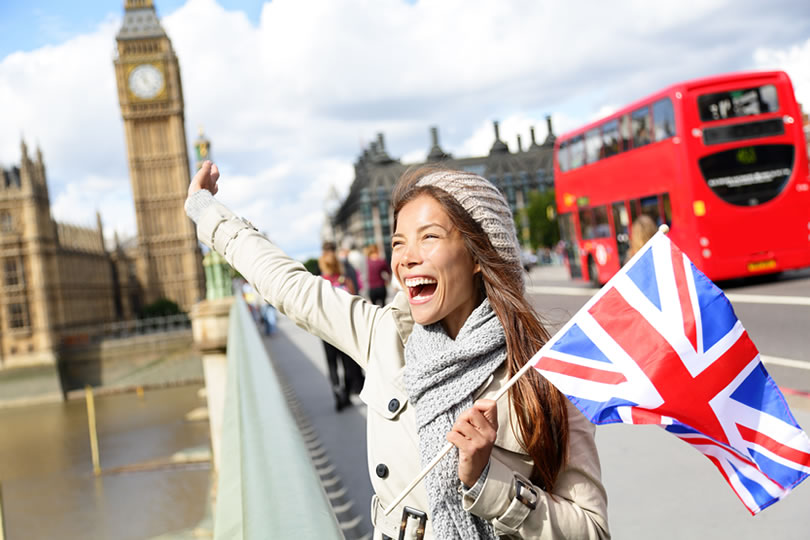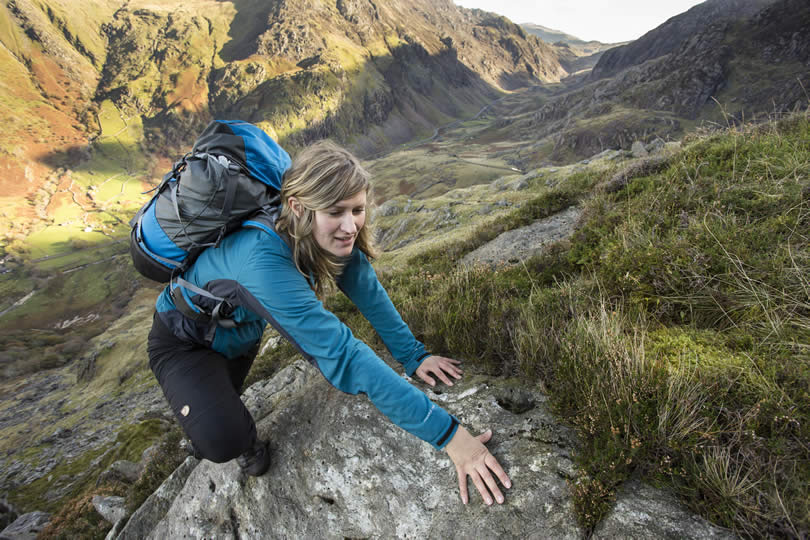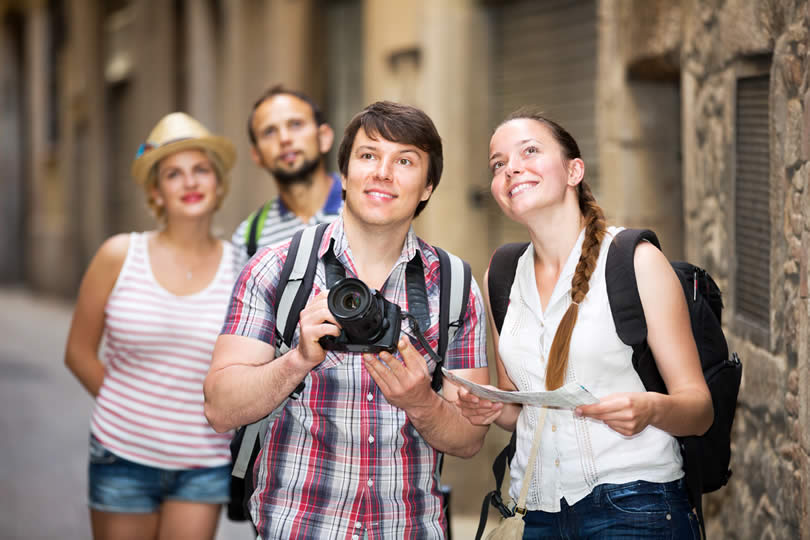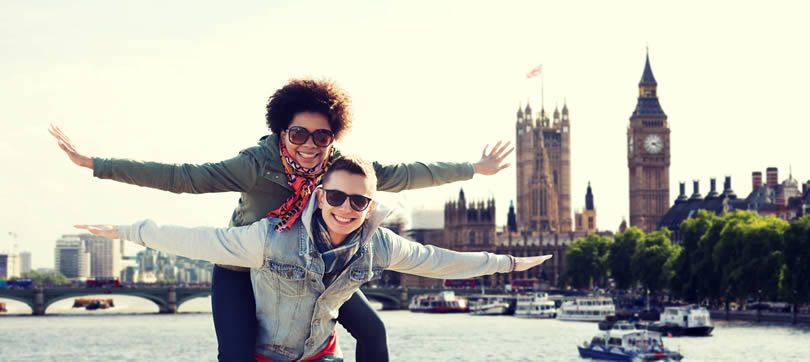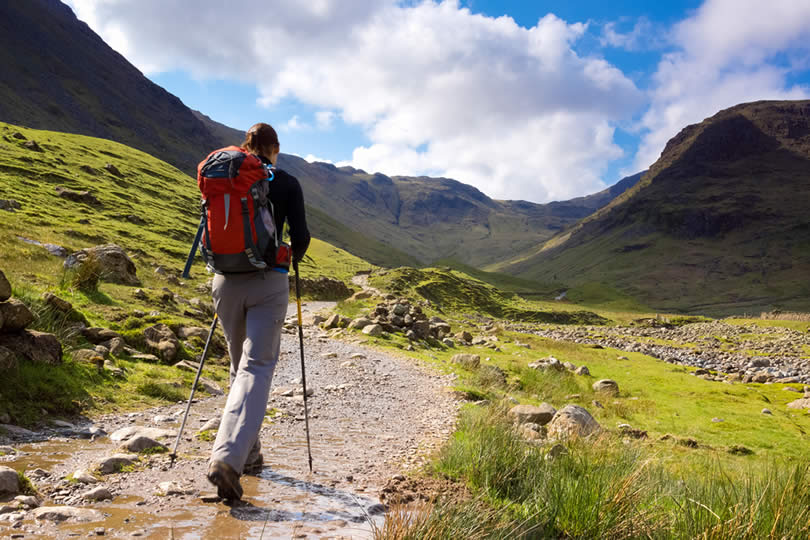Best Reasons Why you Should Travel
Benefits of Travelling
The benefits of travel are huge. Really huge. In fact there are so many benefits to traveling, whether it’s a weekend vacation or a yearlong trek around the globe, that it’s hard to get them all down in one place!
From the way travel can improve you as a person, your relationships and your ability to navigate life, to the way it can inspire your future path in life, shape your world view, equip you with essential skills and improve your confidence, health and happiness, we will explore every known benefit of travel.
In this article we take a look at how travel can not only provide you with a series of these benefits to your life and your future, but also how different ways of travel have differing pros and cons. We take a look at the advantages and disadvantages of group travel, lone travel, and traveling with friends and partners. We also explore why traveling when you are young is a vital part of your development.
Reasons Why Travel is Good for You – the essential Infographic
This excellent and beautifully designed informative infographic has pulled together studies and research from various sources, including the US Travel Office. These studies and various pieces of research overwhelmingly prove that travel is good for your heart, soul, health, happiness and relationships.
How does it do this? Read on as we go through this brilliant and eye-opening infographic, bursting with facts and figures that outline exactly why travel is the key to a good life.
Better Relationships
Studies have found that couples who travel together have a better relationship. Of course for some couples, travel is where they find out that they’re not really right for each other! But isn’t it better that you went on holiday to find that out?
Traveling with a partner that you actually want to be with however, means more sex, in different locations. This will not only deepen your bonds but in fact means a better sex life on returning. Studies have found that couples who travel together stay together longer and have increased intimacy even after returning home.

Traveling together gives you that time to appreciate one another. To remember what you live about each other. To talk about those little things in life you don’t normally have time for. It gives couples the chance to just BE, away from being workers, or shoppers, or parents, or people that get the train every day. Couples find that time spent together goes a very long way.
In one study, 86% of the respondents claimed that their romance was rekindled as a result of a holiday. Anyone in a relationship knows how easy it is to get stuck in a rut and to take one another for granted. Rekindling your relationship, remembering what you love about one another and spending that vital time together is the perfect way to keep that log fire burning.
Time to book a flight to a surprise weekend getaway with your lover? It may be the best Christmas present you ever give…
Family life
There’s no doubt that traveling is great when you’re young, but it’s essential to keep holidaying once the kids are born. Anyone who had family holidays as a child will agree that these lifelong memories are a vital part of their growing up. In fact in one study, 49% of adults claimed to have vivid memories of childhood holidays.
Families that holiday together stay together, in fact 53% of the respondents of one study claimed that holidaying together made them feel better connected as a family. In fact an impressive 59% of respondents said that traveling with family OR friends had a greater impact on the holiday experience.
So what are you waiting for? Pack those suitcases and give your kids the memories that they’ll cherish for life!
Happier self
Other studies have found that traveling can make your happier. In fact 88% of those that regularly travel say they are satisfied with their outlook in life. Further studies have proved that anticipation is more important than owning (or experiencing) the physical thing.
This means that from the minute you buy a guide book, book a flight or start talking about a holiday you start reaping the benefits of it. Once upon a time, the main focus in life was to get through it, to stay alive, to avoid disease, war and famine.
The world of the future however, especially in developed countries, will be a focus on having a happy life. What is the point of an unhappy one after all. With more and more studies finding that travel makes us happier, it will be an ever more important facet of our lives. Travel makes you happy- simple!
Healthier self
Another study found that women who vacation just once every six years or less, have a higher chance of coronary heart disease. On the other hand, women who holiday or travel twice per year are less likely to have heart heath problems by comparison.
It’s not just the ladies either, men who don’t regularly travel on an annual vacation were found to be at a 20%-30% higher chance of heart disease. In fact missing just one year of vacations has been found to be associated with a higher risk of heart related problems in both men and women. The poorer your health becomes, the harder it is to travel, which means that holidaying is technically a preventive measure to protect good health!
Those who refuse (or are not able) to take a break from their daily life, will find they are not so able to manage the stress hormone Cortisol. Increased levels of cortisol means more stress in your everyday life. This can lead to a higher blood pressure, heart problems and even mental health problems. Is there any better argument to travel than this? In fact Women who don’t travel are up to two times more likely to suffer from depression than those that do.
Being healthy is about more than heart health and stress of course and travel can make a big difference to all aspects of your health. More exercise can help you lose weight, as can an introduction to a more varied diet. Opening yourself to a wider environment can help alarm you to be better protected from certain illnesses.
Even in the most simple way avoiding winter at home can help you to not get a cold. 100 years again scientists thought they sea air and spa destinations were good for health and this was true. Of course they had no idea why these destinations were good for the health. It turns out however that a change of scenery is all it takes in come cases, whilst getting outside of your own four walls is another one.
As you can see, travel doesn’t just make you happier, but healthier too!
Better worklife
Having a break from work not only means lower levels of the stress hormone cortisol, but it actually means you may come home better able to do your job; conversely those who spend time on holiday feel more creative and able to think more freely as a result of getting away. This means you should return to your desk refreshed, renewed and full of plenty of bright ideas.
So if your boss refuses you the time off work, remind him or her that travel will actually make you a better, more refreshed and more creative employee.. that should do the trick!
Better sleep
One major study for the Office for Travel in the US, has found that those that return from even a short trip are averaging one hour more sleep than before! Not getting enough slee is a major factor when it comes to health, happiness, stress levels, workplace productivity and even better economics.
Anything that will improve or lengthen the sleep that you get will be good for your soul and general wellbeing and that’s why travel is such an important part of our modern lives. Furthermore they experience reaction times of up to 80% faster than before. This won’t just make your worklife better but your health, happiness and general day to day life better too.
As you can see these studies and vital pieces of research pulled together in one handy infographic prove that travel is an amazing way to enhance your life.
Whether it’s because you want to give your kids precious memories, enjoy a happier, more intimate and more romantic relationship or simply take a beak from work, travel is the way to do it. Perhaps it’s your health- mental or physical- that could do with the boost, or you just want to get your creative juices flowing, it would appear that there is very little that a vacation, long or short, CAN’T fix.
Read on as we take a look at how to get the most from your travel experiences, including who to go with, when to go and some tips for seamless, stress free travel.
When and who to travel with
IN this section we will take a look at HOW to travel. We explore whether it’s better to go it alone, or with a group or perhaps with one or two friends.
Read on to find out how traveling alone can arm you with amazing life sills, and how traveling with others can deepen bonds and provide wonderful shared experiences. We also explore why traveling when you’re a student can save you money and improve your studies and how traveling when you are young is key to a better future.
The Benefits of traveling for students
Being a student is an important time in your life. It’s a period when you learn an awful lot more about your place in the world, whilst gaining a deep insight into your chosen study area. It’s also the time of your life where you gain greater independence, learn to do things for yourself, learn to manage your own finances and safety and find solutions to problems.
Traveling does all these things for you too, which is why traveling when you’re a student is the perfect time in your life to do it. In fact not only does studying and traveling mirror one another, but they can complement one another as travel can deepen your experience as a student and even enhance your studies.
Enhancing your studies
Depending on your study area, traveling as a student can hugely enhance your studies and deepen your understanding of a certain subject area. It may be directly linked to your course, perhaps if you are studying Geography, Tourism or International Development.
Alternatively it may be indirectly linked to your course, perhaps if you are studying World Literature or History. Those studying Philosophy, Sociology, Anthropology, Science or Politics will also find that world travel will give them greater insight into the people and nature of this world.
Save money using Student discounts
As a student you are entitled to all sorts of travel discounts which are not accessible to your average Joe.
This includes discounted rail travel across Europe and even reduced flights with specialist companies such as STA. There’s no better time to take advantage of these discounts than when you are studying.
Travel during longer holiday breaks
University and college students are granted brilliantly long summer breaks, and in fact the Spring and Christmas breaks are far longer than they were when you were at school. This makes travel easier when you’re a student than at any other time of your life.
In fact many university students find that they get the best part of three months off from June to August in the summer. This means you have time to do a little more than a week in Cancun. In fact many canny students use this time to do overseas internships, or au pair for the summer. Others use it to do voluntary expeditions and help build schools or hospitals.
For some this longer tome period means dedicating three months to a specific region of the world. So whether you want to get North America, Europe, South America, Australia or South East Asia under your belt, this commitment-free holiday break is the ideal time (although you may need to catch up on your summer reading when you get back!)
Travel before your career begins
What better time to get some traveling under your belt but before you knuckle down and start a career? Traveling during the course of your studies, whether it’s College or University is perfect, as it means you don’t disrupt your career in any way.
The benefits of traveling alone
Traveling alone is for some, the only way to travel. As we’ll see traveling alone lends you a type of freedom rarely experienced in everyday life. It means choosing your own path, cutting out the drama and being the person you always dreamed of being.
Travel on your terms
Traveling alone means that you can change your mind or perhaps stay somewhere for longer, without consulting a friend first. It means choosing a destination based solely on YOUR preferences with no requirement for compromises.
It means no arguing about whether you should go on this day tour or that day tour, whether you should give the south of the island another couple of days or arguing as to why you fancy a first-class train ticket for the next leg perhaps. It means doing things on your terms, when you want and how you want.
Drama free travel
As a result of avoided the usual arguments with friends, traveling alone means drama-free vacations. This makes it an excellent choice for those who like an easy life, who prefer to avoid confrontation and who want to go away in order to AVOID drama than to engage with it.
Meet new friends more easily
Traveling alone also provides much more scope for meeting new people. Meeting new people, even when they’re from your home country, is one of the most exciting things about traveling. It’s where new friendships and sometimes romances begin.
Meeting new people can broaden your horizons, open your outlook and introduce you to fresh ideas. It’s far easier to make new friends when you are on your own, as people are more likely to approach you. The best friends to make are often fellow lone travellers.
Be a new you
Travelling alone also allows you to be the part of you that you want to be, untied to the expectations that your existing friends and family have of you.
Fancy being spontaneous? There’s no one there to remind you that you normally aren’t. Want to wear different clothes? No-one can remind you of how you normally dress.
Improved confidence and self esteem
Lone travel is almost guaranteed to improve your confidence and in turn, your self-esteem. Whether you struggle in these areas or not, those who have traveled alone tend to return home feeling more confident in everyday tasks, whether it’s a job interview, settling family arguments or trying out new things.
Once you’ve worked out how to get from Vietnam, to Cambodia by public transport with a few Dong in your wallet and no internet access you can do anything! Making new friends as mentioned above is also key to improved self-confidence and better self-esteem.
Be more comfortable with yourself
Traveling alone will, inevitably, involve spending plenty of time on your own too, but this is no bad thing. The happiest people in the world are those who are comfortable spending time on their own and learning to do this happily is an important life stage.
It also means being comfortable with who you are in certain situations, which is something you’ll gain by traveling alone. Being comfortable and confident with asking for directions, starting conversations with new people and knowing when to say no or ask for help will help you even when you return home.
Sticking to budget
Traveling alone means that you and you alone set the budget for your trip. Whether you want to splurge on five star accommodation, fine dining and business class or whether you want to make your way around India for $10 a day, being on your own is the only way to stick to your budget.
Traveling with friends ALWAYS requires compromise in this department. They will either have less money or more money to spend than you and one of you will always be paying for the other to do the things that you want to do whilst compromising on the rest. Lone travel really is the perfect way to stick to your travel budget.
Improved problem solving (and map reading skills!)
Traveling alone will no doubt improve your ability to solve problems, whether it’s how to get from A to B or how to get out of a sticky situation.
With no one to rely on than yourself you’ll find that your ability to seek out solutions improves no end. Remember this isn’t a skill consigned to use for holidays, this is a life skill that will see you through for the rest of your days!
Traveling alone: the cons
There are cons to traveling alone and it obviously means being more cautious and taking more precautions. Always make sure someone knows where you are and let a designated person at home know your itinerary and alert them every time you reach a new place.
Traveling alone tends to mean you need to take a little more care about where you stay, traveling on transport at night, not overindulging at the bar and so on. It means you need to be on guard when you make new friends, look out for scammers and not to trust strangers too easily. However taking these extra precautions are a small price to pay for the huge benefits of traveling alone as mentioned already.
The benefits of traveling in a group
Traveling in a group has many obvious benefits such as increased safety and guaranteed fun. Whether it’s a group of old school friends, family members or your mates from halls, a large group pretty much guarantees that you’ll have a good time.
Of course large groups tend to work better for shorter trips. Spring Break, city breaks or a skiing trip are all perfect with big groups of friends. Extended periods of World Travel, not so much.
Saving money
Surprisingly, traveling as part of a large group can save you plenty of money, in a number of ways. A large group can book out a large dorm room in a hostel, they can book an entire ski chalet or even a hotel.
Furthermore you can make savings by negotiating the price of group tours or entry to certain attractions and you can even mean spending less on eating out by sharing meals.
Always having a friend to rely on
Group travel also has the added perk of having lots of friends close by. Unlike traveling with one or two other people, with a group of ten you can spend each meal, day or activity with another friend. This not only makes it more fun but prevents you from getting bored or agitated by the same person and allows you to deepen your relationship with a larger pool of people.
Furthermore it means there is always the right friend for every job. Of every group of friends, one is the best at negotiating deals one is the best at talking to strangers, one is best at map reading or being organized and one always knows how to get he party started. Group travel means having the best team on board to make a holiday go with a bang.
Activity or specialist vacations
Some vacations such as activity holidays are perfect for groups. Groups with a shared interest such as skiing, walking, or cycling will find group travel is ideal as you can negotiate great deals on the things you all love to do.
It doesn’t have to be activity-geared either; groups of singles make for an ideal group for a holiday or even extended travel trip, as do groups of a certain religion or orientation.
Group travel: the cons
There are downsides to traveling in a large group and that of course includes doing what everyone else wants to do. Democracy in large groups gets ever harder, the larger the group gets.
Sometimes groups find themselves splitting off into smaller groups depending on the preferences of individuals.
The benefits of traveling with friends
Who better to see the world with than your nearest and dearest? Whether you travel with one, two, three, four or a bunch of five friends is a guarantee of fun times ahead. Traveling with friends can deepen the bonds you have and will provide lifelong shared memories.
Saving Money
Traveling with a small group of friends will inevitably save you money IF you plan ahead. Try to decide a similar budget with each other, this will make choosing accommodation and where to eat out much easier. Share rooms where possible, eat out at restaurants where you can share meals and even pool your resources to save money.
Traveling with a group of friends means only one of you needs to buy a guide book, or sun cream. It also means you can purchase group travel insurance which will be cheaper than single insurance for four people, for example.
Safety
A small group of friends as opposed to a large group is arguably the safest way to travel. This is because you will always know where everybody is.
Traveling alone NO-ONE technically knows where you are, whilst it’s easy to lose one member in a large group. Traveling in a group of three or four close friends however, means always knowing where each other are – a vitally important part of travel.
Better relationships in life
When you travel with friends you will see a whole new side to them, and whether this is good or bad it will determine your ability to maintain friendships and build relationships for the rest of your life.
Only those who have shared a smelly dorm room with a friend for a week or had to borrow their underwear will know how important a good friend is. Plus those who have had to negotiate, compromise, delegate, discuss and solve arguments will be able to apply these skills to the relationships they have throughout their lives.
The gift of friendship
Short trips such as city breaks or a week in the sun is also ideally shared with a friend. Only your oldest and dearest friends will stop you from having one too many, shade you if you fall asleep in the sun, or lend you cash when your run out of money.
Having a true friend by your side whilst traveling can be more valuable than travel insurance.
Traveling with friends: The cons
The biggest risk of traveling with good friends, is falling out with them. Many a good friendship has been ruined as the result of a holiday argument. It also means comprise at every turn, listening to each other and putting other’s needs ahead of your own.
The benefits of traveling with a sibling
Traveling with a sibling is a popular choice and provided you get along, it is an excellent choice. Not all siblings are close and some justifiably can’t stand each other, but for those that are close, its a wonderful way to see the world or take a short trip.
Who knows you better?
Few people in life will ever know you as well as your sister or brother. You grew up together, you share genes, you probably even shared jeans too! Your sibling can predict your behavior like no-one else can, they can accommodate you, can balance you and can speak up for you.
Your sibling will protect you defend you and make you laugh. Sibling travel is a wonderful way to deepen those bonds once you reach adulthood, when you no doubt spend less time together than you once did. Shared memories will also be kept and enjoyed forever. Friends drift apart, but siblings rarely do.
Travel with siblings; the cons
Of course traveling with your little or older brother or sister also has huge disadvantages. No-one in the world winds you up like your sibling and should you have an argument, we all know it will be the blow out of all blow outs- arguments amongst siblings are frequent of the no holds barred variety!
Traveling with a sibling can bring up long, buried disagreements and can even lead to parent’s getting involved to stabilize differences! The basic guide here would be to only travel with a sibling you have long been close with, and not one that you have umbridge or issues with.
The benefits of traveling in your 20s
Anytime of your life is a good time to travel and there is no upper age limit when it comes to the benefits of broadening your horizons and having new experiences. That being said your 20s are a particularly influential time in your life.
The experiences you have in your twenties can affect how you see the world forever. Learning that you are one individual in a world of 6 billion is key to understanding your place in the world.
Job inspiration
Traveling can inspire ideas about not only what sort of person you want to be, but also what sort of job or career you want to look forward to. Jobs inspired by travel can include teaching, writing, nursing, charity work, fundraising or journalism.
World view
Traveling can also help in forming your world view. This could go in any direction of course. For some they travel the world and come home with the decision that they should dedicate their lives to the poor, others come home determined to make heir own life a success. Some come home with a passion for saving the environment, others with the idea that we should look at alternative models for living.
Opening your eyes to the world may mean seeing things you don’t wish to see, but it also shows the humanity that is found all over the world. Some find religion, others lose it, some give up meat, others take it up. There’s no set way you may change or determine your outlook in life, but travel will always be a key part of the process of how you continue to live your life.
Essentially travel will show you that home is home, but it’s not the only way to be. There are communities all other the world living life with a different outlook and none is more right than another. Learning that we are all different, whilst also discovering that which we collectively share, is a vital part of growing up.
Developing cultural sensitivity
Developing a good sense of cultural sensitivity is vital part of learning for young people. It’s those that never stray far from home that are more likely to be afraid of differences, to harbor unkindly protectionist views and to see the world as a threat.
Those that travel are better equipped to understand people from all walks of life, to know that we need to act differently in different situations, to understand how important it is it respect another people religious and cultural freedoms and essentially to become better rounded individuals.
Those that develop a more heightened cultural sensitivity in their 20s are more likely to retain a progressive outlook throughout life and in turn will meet a more varied and a larger pool of friends, will be able to network better in their future careers and will be able to pass on what they have learn, seen and experienced to their own children.
Commitment free 20s
Provided you haven’t yet had children, there is never a time in your life when you will have fewer commitments than in your twenties. Once your thirties and forties hit you will no doubt have a career, spouse, mortgage and most importantly children.
Traveling with children is a whole different ball game and does not allow you the freedom to explore and learn as traveling before you have any. Those who don’t travel when they have the chance tend to regret this when life gets serious and there’s no time or money to get away.
Learning about home
Sometimes the best way to learn about where you are from is to step away from it. World travel in particular can teach you things about your own home country that you never knew. It will teach you how your country is perceived in the world and about the good (and bad) things that it has done and is doing in the world.
Travel will help you understand about colonialism, about language, about business and about the place of your home country within that. It will give you a better insight into the things your country has done that works, and perhaps the things that need to change.
You will be able to see you home through the eyes of the rest of the world once you’re returned and whilst this will change how you see your home forever, it is a vital part of your development as a citizen.
Prepare for globalization
The world is an ever more global village and the better prepared you are for this, the easier your future life and career will be.
Economies such as Russia, China and India will play a greater role in the business world of tomorrow and as a well-traveled young person you will be more equipped than your contemporaries to deal with this.
Learning a new language
Those in their 20s looking to learn or firm up their knowledge of a second (or even third) language will find that full immersion into the language is the only way. There is no single way to get up to speed with your Spanish than to spend a month in Mexico, or your Mandarin than by traveling to China.
Those that can speak these major world languages will again, be better equipped for the future, will be able to secure better jobs and will have a huge advantage over their contemporaries. Leaning a language from home is one thing, but to learn it in-situ cannot be beaten.
Networking
Whilst traveling you may even be lucky enough to make some vital networking links. This will of course depend hugely on where you travel and what you are planning for your future career.
But you never know, that trip you took in your 20s could be the key to opening a door you would otherwise never have access to in your 30s or 40s.
Be a better parent

A well-travelled parent is a patient, tolerant and understanding one. Perhaps you will inspire a sense of travel your own children?
Memory Building
One of the main reasons to travel when you are still young, in your late teens, twenties or even thirties, is that you will have these memories going forward for the rest of your life. This is a massive argument for not putting off that trip you’ve always planned.
Sadly life isn’t always on the up, sometimes life is hard, sometimes you’ll have money problems, or family problem or you’ll be facing redundancy or divorce. The better your memories of being young, the more able you will be to deal with times when they get hard. Memories are a huge part of not only your development but your mental health going forward. Travel during your 20s will protect you in the future, by making sure you always have something good to think about.
Tips for happy traveling
We now know that traveling offers us a wealth of benefits, both to our personal and professional lives, our relationships and our health, but how can we ensure a positive travel experiences? Read on to pick up some vital tips for happy traveling.
Travel Insurance
Booking your travel insurance is arguably the single most BORING part of any trip. But in some ways it’s the most important. Countless holidays are ruined year in, year out, for those that have refused (or forgotten) to take out comprehensive travel insurance.
The right insurance will protect you against theft, lost luggage, cancelled flights, double bookings and most importantly, against medical costs which can be huge should the worst happen.
Organization
Organization is key to happy traveling. Being organized will take all the stress out of travel and if you remember, reducing stress is one of our many happy benefits to traveling! Draw up a loose itinerary of everywhere you are going and make sure you are armed with all the information you need.

These seemingly boring organizational processes of any trip are the difference between a happy, laid back holiday and a stressful nightmare trip.
Budgeting
Choosing a budget and knowing when to stick with it and when to be a bit more fluid with it, is another key aspect of happy travel. Running out of money has ruined many a holiday or extended period of travel and whilst some can phone home to have money wired, not everyone is in that position.
In order to budget properly allow a contingency amount of money and also take an empty credit card to be used only in an emergency (or perhaps a final night blow out!)
Saving
Forget budgeting, if you haven’t saved you won’t have any money to even go on vacation. It’s more than possible to travel on a shoestring, and doing so is a great life skill, but even shoestring travel requires a few hundred dollars or pounds in the bank to begin with. Give yourself plenty of time to save for your trip and make it relevant.
In other words you may be able to pay for a weekend away easily but two weeks in Mexico may require a few months saving whilst a year round trip may require some serious long term saving (and a bit of begging to the parents). As our handy infographic demonstrated, annual travel is essential for our health and happiness and this technically means that we need to be saving money all the time for our next trip. Smart travelers save every month into a holiday fund, keeping it buoyant at all times.
Choosing the right destination
It’s vital that you choose the right destination for your trip. If you are determined to learn more about the world but end up spending a week on a beach with fellow Americans, you may not have found what you are looking for. Alternatively, should you be looking for nothing more but a break from the stresses of everyday life and you’ve inadvertently signed up to a daily tour of museums with no break, you may not get the rest and relaxation you need.
How long do you have, have you got time for extended flight journeys, or would you be better off going somewhere closer to home? How important is the weather to you? How important is it that your destination is accessible in terms of language? Do you have a disability that would make travel to some places too hard to enjoy? Despite the many many benefits if travel, if you pick the wrong destination you may not be able to enjoy these benefits.
Ethical Travel
For some people the compromise on their ethics is a huge barrier to travel. Is the mode of transport you are taking going to impact the world, will a deprived destination benefit or lose out from your visit?
Ethical travel is more than possible as you can offset carbon and book with travel organizations which guarantee that your trip has a pomposity impact on the local community. If ethical travel is important to you you won’t be happy unless you know you have looked into this.
The gift of time
One thing we haven’t explored is how travel gives you time. Whether it’s the long journey there, the fact that you can lie on a beach without worrying about the laundry or the simple fact that you have no job to go to, in almost all cases your vacation affords you a level of ‘spare time’ that you don’t normally get at home.
How can you ensure that this extra time is well used for your benefit? Start by taking a number of books. Include a couple that you have always wanted to read (War and Peace, Catch 22) and add a few that you can read in a day (Before I go to Sleep, anything by Dan Brown) and also take some local history books of the region you are visiting.
Travel may make us happy but so does reading, plus reading allows us to travel to places without even moving. Some of the best holidays are those which have afforded you the time to finally read that tome, or even just escape to 1920s England from the shore of Thai beach.
Other ways to use the gift of time on holiday to your benefit is to go for long walks (who has the time to do that at home?), to enjoy some yoga or mediation, or simply to sit and chat for hours with a friend or loved one. It’s the gift of time that actually helps with the benefits of travel. It’s the gift of time that helps reduce our stress, that helps maintain our relationships, that helps us explore new places and understand people better. It’s time that allows us to be more creative, to find ourselves and to be better problem solvers. None of this would be possible in our busy day to day lives.
Essentially this means that to really get the most of the advantages of travel, you need to allow yourself the time for them to take effect. For every day of sightseeing, allow one on the beach. For every early start for a tour, allow a long lie in. If you can’t relax on holiday, then where can you relax?
Summary of the Benefits of Travel
As you can see the number of benefits to traveling are a great many. We’ve taken a look at everything from how travel can improve out health, reduce our levels of stress and heart disease, how travel can improve out mental health and prevent depression.

We’ve also explored who we should travel with and the benefits to different types of travel, we’ve looked into how to get the most from our trips by being organized and budgeting well and how to save money in preparation. We’ve even looked into how to choose the right destination and to make the most of our time whilst on holiday.
This means that there’s only one thing for you to do now… book that holiday you’ve always dreamed of, whether it’s a week in St Lucia, a month in the Andes, a trek around Vancouver Island, a month in London, the ruins of Ancient Greece, farming in New Zealand, rail travel around India or spending a week in a hammock in Thailand. The world has endless possibilities for travel, and some are even closer than you think.
Whether you want to improve your relationship, your health, enhance your studies, gain confidence, improve your happiness or simply improve your future lot in life, there’s no faster, simpler and easier way to do it than to inject your life with the gift of travel.

